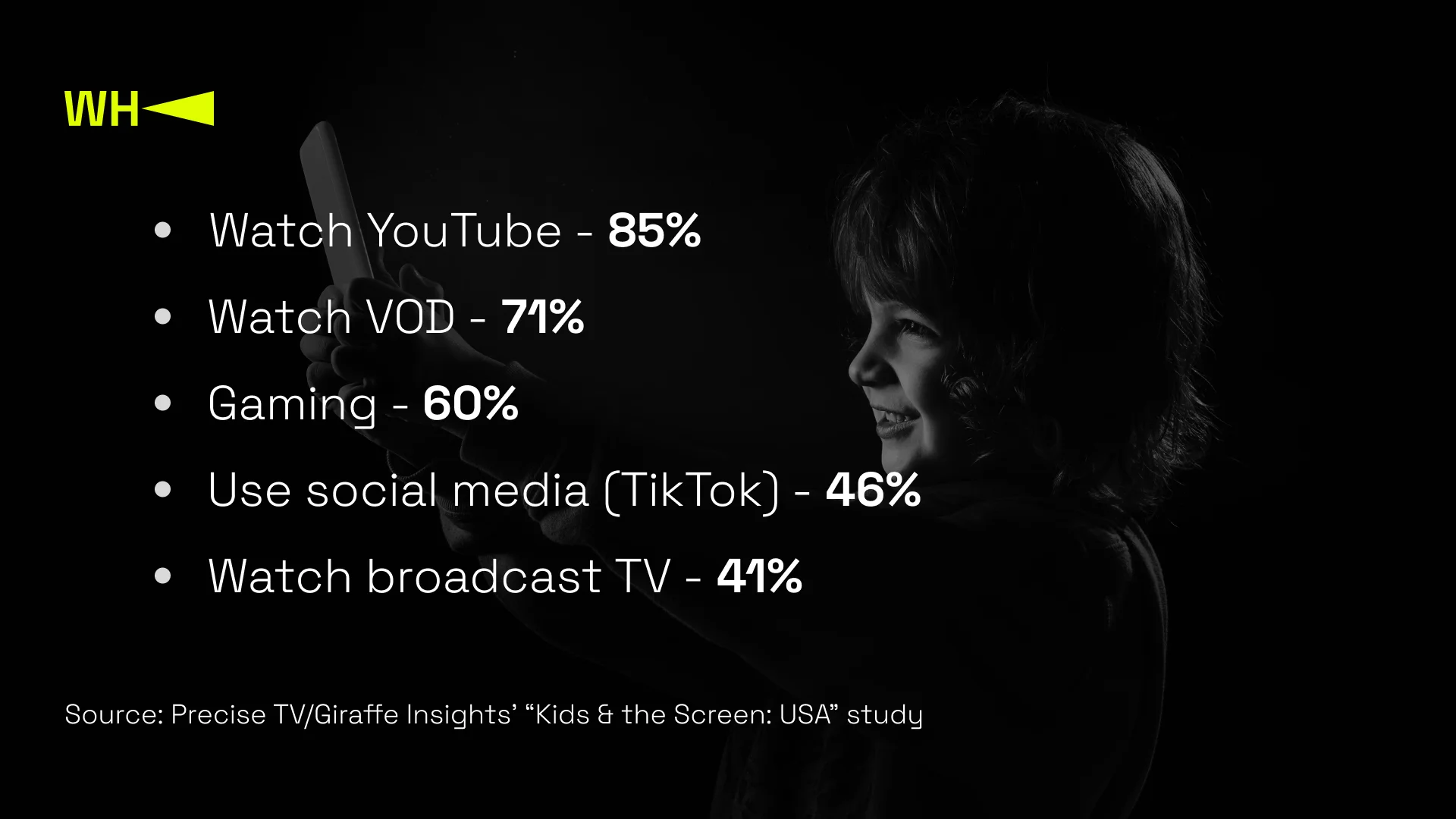March 11, 2024
Gen Alpha: The New Entertainment Industry Power Player?

4 min read
Generation Z is well known for being digital natives and has been quite a receptive audience for many brands entering the online world and getting into internet marketing. However, it’s time to raise the bar ’cause the new generation is coming.
Who are Generation Alpha?
Representatives of the new — Alpha — generation were born between 2010 and 2024. They entered and started exploring this world after the release of the iPhone, YouTube, and Google. When the oldest representatives of this generation turned six, a new platform, TikTok, appeared. Generation Alpha is the first fully online cohort that is already influencing industries.
In many ways, Generation Alpha is similar to its predecessors — Generation Z and Millennials, but at the same time, there is something exceptional about them.
Creativity
Gen Alpha is not merely content consumers but creators. They are well-versed in using the latest technologies, such as AI and no-code software, that are game-changers when creating digital avatars, editing videos, or making social media content. Gen Alpha would learn to code to build their playground in Roblox as entertainment. They prioritize video content: even memes made by this generation are short videos rather than pictures.
Gaming as a new ecosystem
Since most children get their first devices early, they grow up with constant internet access via a smartphone or tablet and learn to harness it fast. They study, get entertained, and communicate through various devices and platforms. It’s yet to be said for sure, but the popularity of Instagram and Facebook will most likely decline for this generation. Instead, Alphas find a narrower community to communicate directly within games like Fortnite and Roblox and use YouTube and TikTok for content consumption.
Socializing online
Plenty of online communication can detract from in-person socialization. It is worth noting that the 2019 pandemic had a striking impact on this generation. Schoolchildren and preschoolers were essentially locked up at home during COVID-19, interacting only with their families. However, they quickly make new friends and find common topics for communication online. One in four parents claims that their Alpha child has an online friend, even though they have never met in real life.
How is the entertainment industry adapting to Generation Alpha?
So, taking into account the general characteristics above, a few trends will redefine the entertainment industry for Gen Alpha.
Gamification
It isn’t new but worth a dozen pieces of marketing advice if applied correctly. For young Alphas, gaming is the new social network, knowledge source, and many other things. So, to build a strong connection with upcoming generations, brands must turn interaction into a game. Mattel, who brought into this world era-defining toys, delves into mobile gaming, reinventing old games like UNO and Skip-Bo for smartphones and tablets.
The traditional movie industry is also looking to hook younger audiences. Disney invested in Epic Games to create a comprehensive metaverse where users can interact with existing content and become creators of their own stories. Moreover, just as the movie industry is seeping into gaming, gaming is finding ways to turn players into viewers. Series and movies like The Last of Us, Mario, Arcane, and Minecraft appeal to its fanbase and help create more content around the product.
Culture nostalgia
For the most part, the parents of Alpha children are millennials who also played games as teenagers and keep doing it as adults. Video games are one of the best ways for these generations to diminish the gap between them. Instead of banning video games, as the previous generations would, millennials play with their children. Their passion for games has earned millennials the name “kidults,” but their childhood is associated with games, which allows them to understand their children better. Kidults’ and Gen Alpha’s common ground is why many franchises go for a refresh to attract the attention of two generations at once.
User-generated content
According to some surveys, children’s influence on purchases starts at age five. The Alpha Gen is empowered to make choices, and their millennial parents try to listen to them. Celebrity advertising does not influence them as much as their peers’ opinions. However, let me emphasize that the Alpha Generation communicates through games and social media. So, for them, a peer is not necessarily a neighbor or classmate; it can be anyone from all over the world: content creators, streamers, and so on.
Although the Alpha generation is very young, they are already a big influence on the entertainment industry. Instagram is getting new AI tools, and YouTube is trying to create TV-style programming for content creators. All these innovations are aimed at the specific audience of Generation Z and Generation Alpha.
Representatives of the Alpha generation bring us a whole new culture with its own humor, slang, and rules. What was considered normal for Generation Z can turn out to be cringe for them. Undeniably, this generation will change the landscape of content creation and distribution. Thus, content production companies and brands’ marketing teams should stay vigilant and responsive to the coming transformations and trends.

